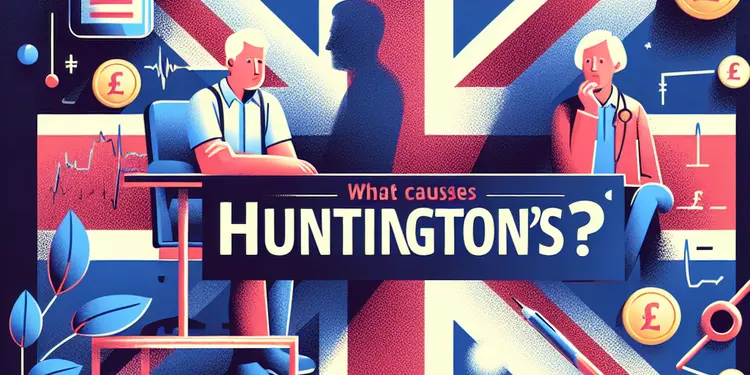
Find Help
More Items From Ergsy search
-
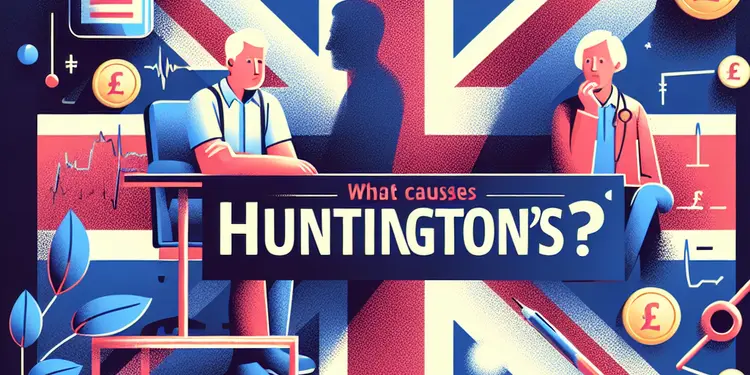
What causes Huntington's disease?
Relevance: 100%
-

What is Huntington's disease?
Relevance: 87%
-
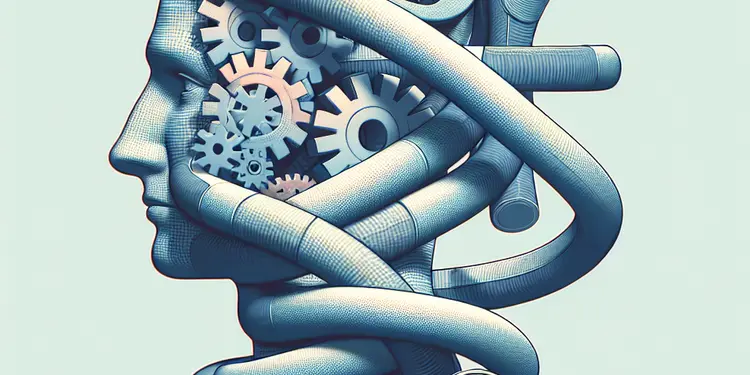
Is Huntington's disease fatal?
Relevance: 86%
-

How is Huntington's disease diagnosed?
Relevance: 83%
-
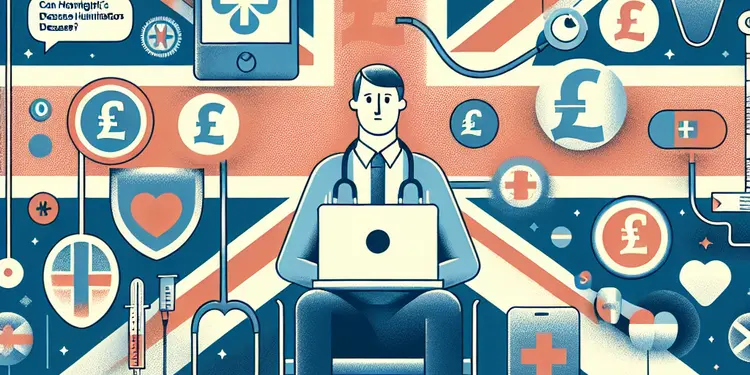
Can Huntington's disease be prevented?
Relevance: 82%
-
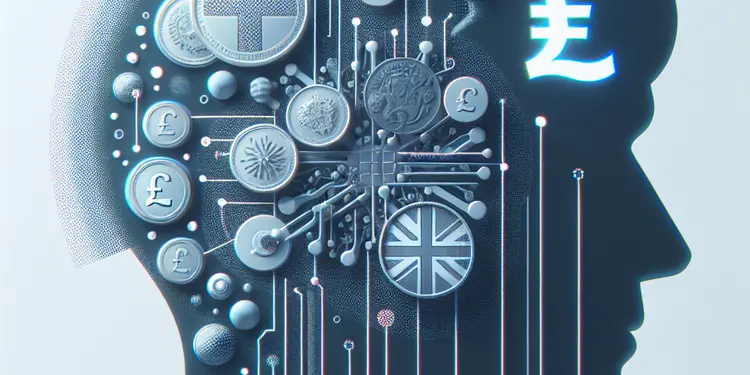
Can Huntington's disease be cured?
Relevance: 81%
-
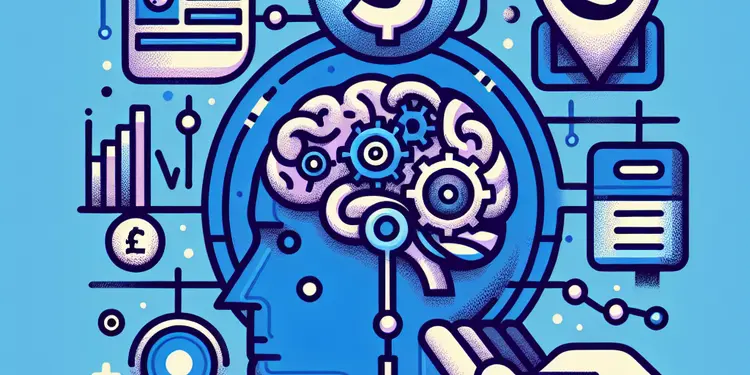
What are the symptoms of Huntington's disease?
Relevance: 80%
-

What research is being done on Huntington's disease?
Relevance: 79%
-
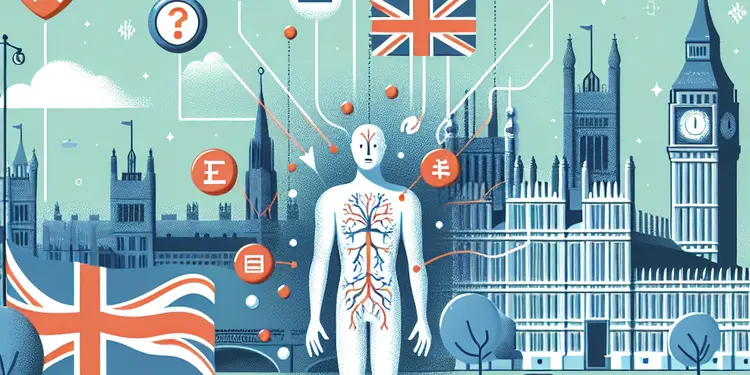
How does Huntington's disease affect emotions?
Relevance: 78%
-

How does Huntington's disease affect movement?
Relevance: 77%
-
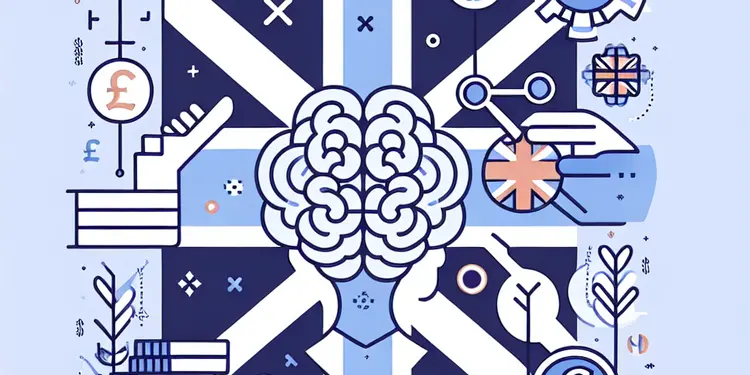
How does Huntington's disease affect cognition?
Relevance: 77%
-

At what age do symptoms of Huntington's disease typically appear?
Relevance: 74%
-
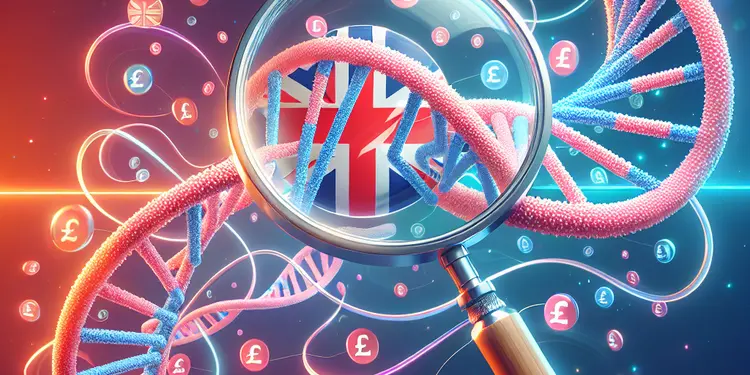
What is the role of genetic testing in Huntington's disease?
Relevance: 73%
-
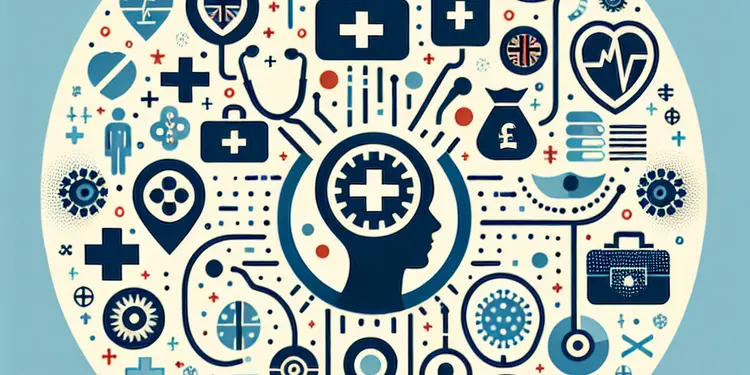
What kinds of specialists are involved in treating Huntington's disease?
Relevance: 71%
-

Can lifestyle changes help manage Huntington's disease?
Relevance: 70%
-

How is Huntington's disease inherited?
Relevance: 59%
-
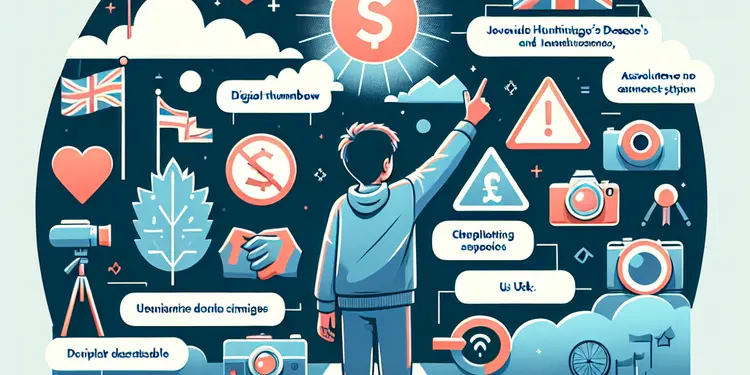
What is Juvenile Huntington's disease?
Relevance: 59%
-

Are there treatments available for Huntington's disease?
Relevance: 58%
-
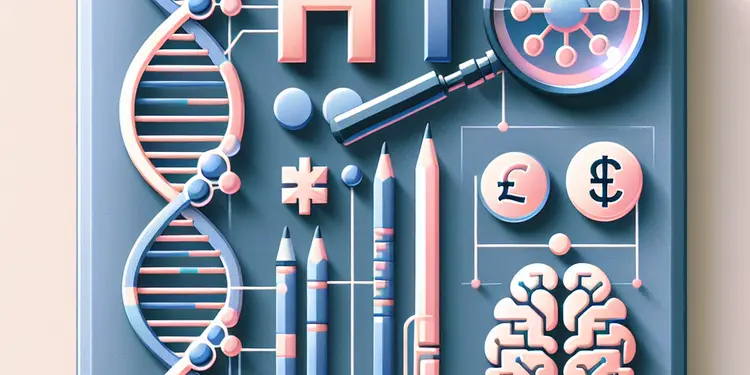
What role does the HTT gene play in Huntington's disease?
Relevance: 49%
-
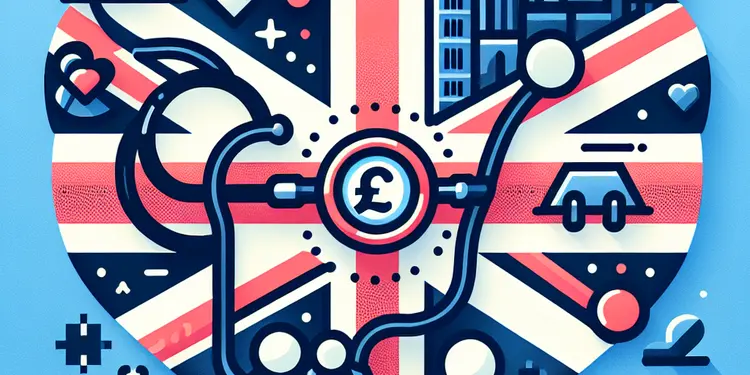
What support is available for families affected by Huntington's disease?
Relevance: 49%
-
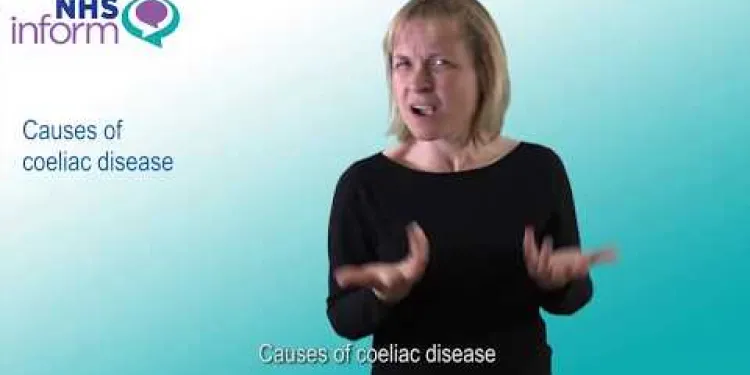
Causes of coeliac disease
Relevance: 48%
-
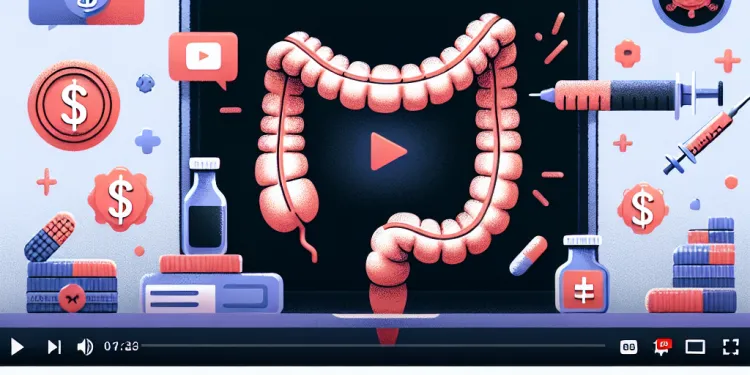
What causes Crohn's disease?
Relevance: 46%
-
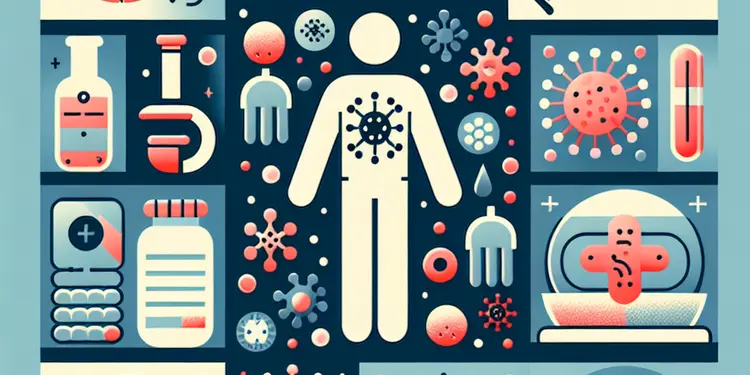
What causes flesh-eating disease?
Relevance: 44%
-

What causes Alzheimer's disease?
Relevance: 44%
-

What causes motor neurone disease?
Relevance: 43%
-

Can vaccines cause the diseases they protect against?
Relevance: 42%
-
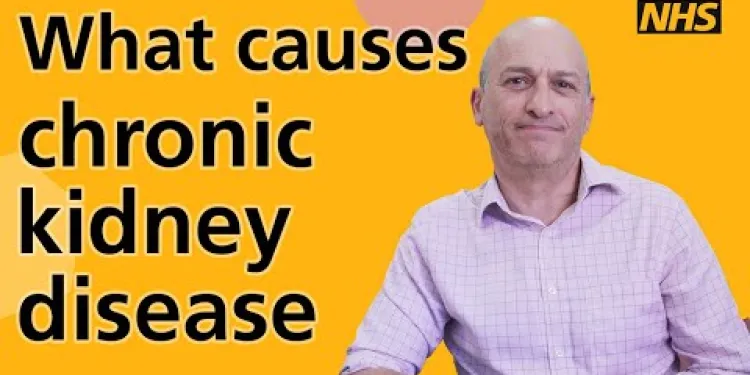
What causes chronic kidney disease?
Relevance: 42%
-
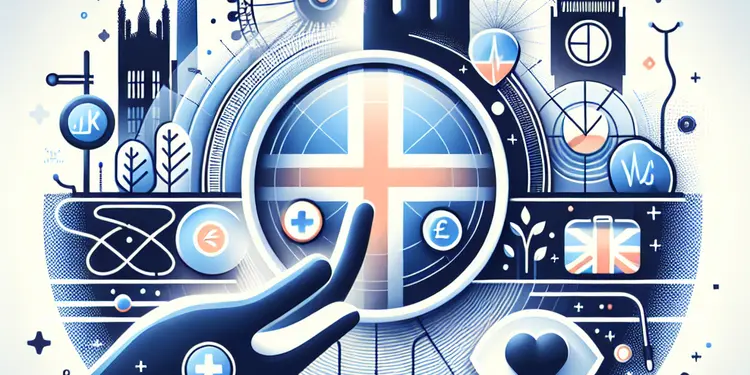
Can flesh-eating disease cause long-term complications?
Relevance: 40%
-
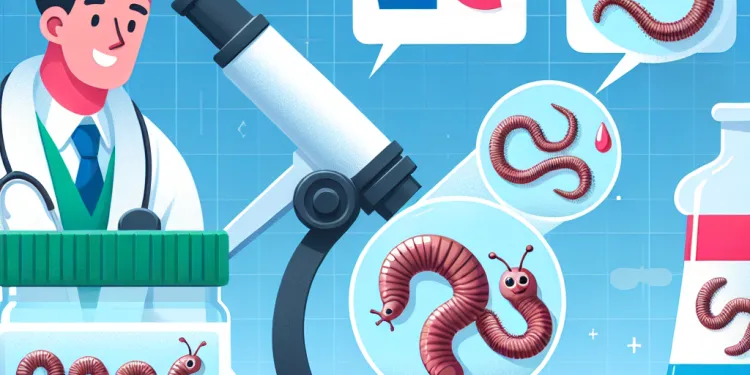
Can screw worms cause zoonotic disease?
Relevance: 38%
-

What Causes Erectile Dysfunction (ED) - Disease or Symptom - NHS A to Z - Dr Gill
Relevance: 34%
-

Is Crohn's disease contagious?
Relevance: 31%
-
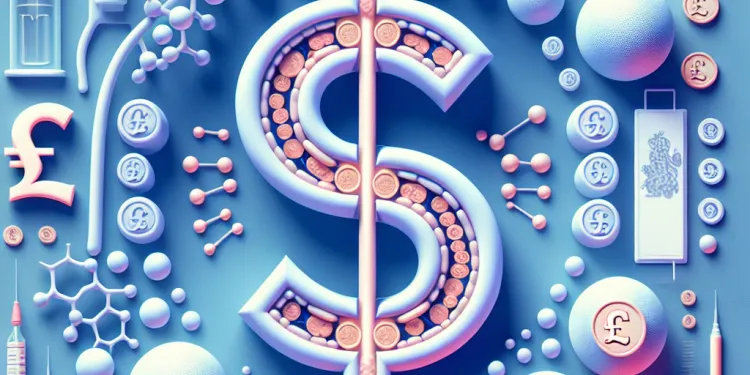
What is Mitochondrial disease?
Relevance: 31%
-
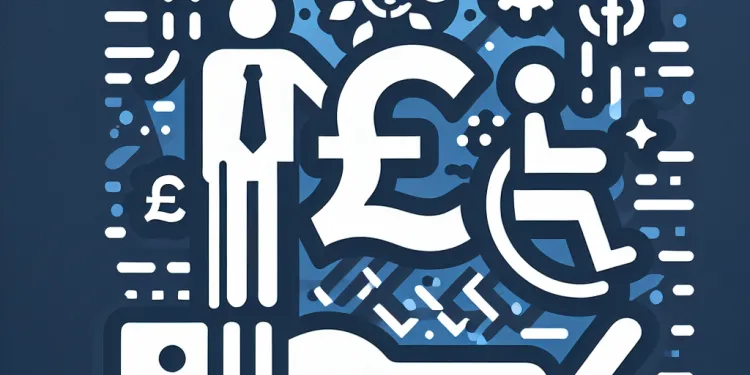
What is Parkinson's disease?
Relevance: 31%
-

Liver disease | NHS
Relevance: 31%
-

Can Lyme disease cause long-term health problems?
Relevance: 30%
-

Is flesh-eating disease contagious?
Relevance: 30%
-

What causes heart failure?
Relevance: 30%
-
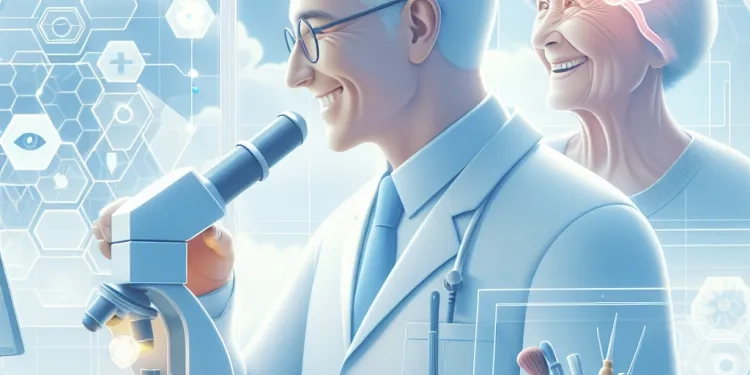
What is Alzheimer's disease?
Relevance: 30%
-
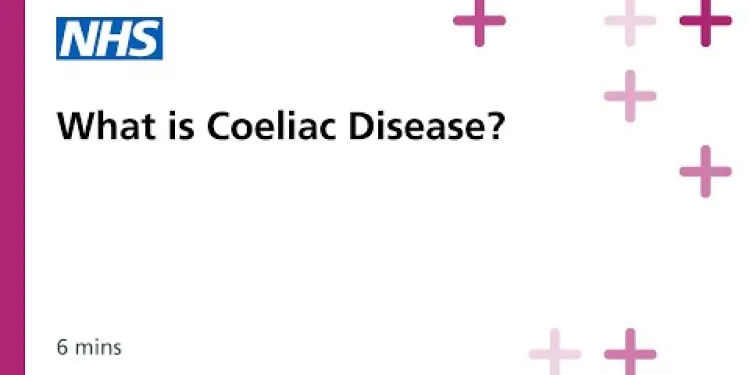
Coeliac Disease: Session 1: What is Coeliac Disease?
Relevance: 30%
-
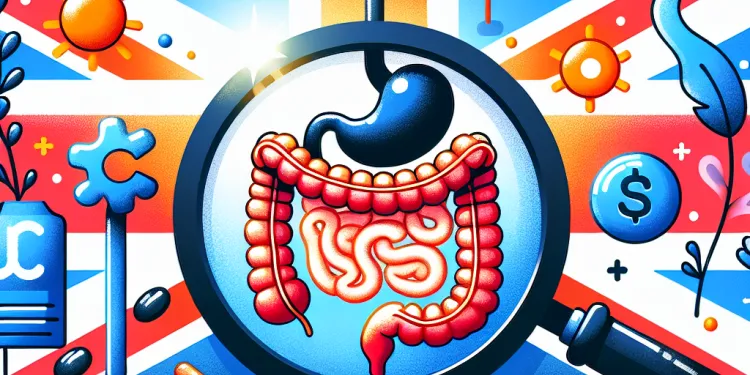
Is there a cure for Crohn's disease?
Relevance: 30%
Understanding Huntington's Disease
Huntington's disease is a hereditary neurological disorder that causes the progressive degeneration of nerve cells in the brain. This condition results in a wide range of symptoms, including motor difficulties, cognitive decline, and psychiatric issues, which typically become noticeable around middle age but can occur earlier.
Genetic Cause
The root cause of Huntington's disease lies in a mutation of the HTT gene, located on chromosome 4. This gene is responsible for producing a protein called huntingtin, which plays a critical role in various neuronal processes. In individuals with Huntington's disease, an abnormal expansion of the CAG repeat segment within the HTT gene occurs. A typical HTT gene contains between 10 to 35 CAG repeats, but in those with Huntington's disease, this number expands to 36 or more.
The severity and onset of the disease are influenced by the number of CAG repeats. Generally, the greater the number of repeats, the earlier the symptoms are likely to appear and the more severe the disease progression tends to be. This abnormal gene causes production of a mutated form of huntingtin protein, which is toxic to certain brain cells, particularly in the basal ganglia, an area crucial for motor control.
Inheritance Pattern
Huntington's disease follows an autosomal dominant inheritance pattern, meaning a child only needs to inherit one copy of the mutated gene from an affected parent to potentially develop the disorder. If one parent carries the mutated gene, there is a 50% chance that their offspring will inherit it. This pattern underscores why the disease often runs in families, with each generation being at risk.
Role of Environmental and Lifestyle Factors
While the genetic mutation is the primary cause of Huntington's disease, researchers are also interested in how environmental and lifestyle factors might influence the expression and severity of symptoms. Factors such as diet, physical activity, and overall health might affect disease progression, yet the genetic mutation remains the decisive factor.
Research and Future Directions
Significant research efforts are underway to better understand the pathogenesis of Huntington's disease and to develop effective treatments. Researchers are exploring gene-silencing techniques, aiming to reduce the production of the toxic huntingtin protein. Other studies focus on neuroprotective strategies to slow disease progression and alleviate symptoms. Genetic counselling is highly recommended for individuals with a family history of Huntington's disease, providing insights into the risks of transmission and options for family planning.
Understanding Huntington's Disease
Huntington's disease is an illness that you get from your parents. It affects the brain. It gets worse over time. People with this illness may find it hard to move, think, and can feel sad or angry. These problems usually start when they are adults, but can start earlier.
Genetic Cause
Huntington's disease is caused by a change in a gene called HTT on chromosome 4. This gene makes a protein named huntingtin. This protein is important for brain cells. In people with this illness, the gene has too many repeats of a section called CAG. Normally, people have 10 to 35 CAG repeats. People with Huntington's have 36 or more repeats.
The more CAG repeats they have, the sooner they get sick. This bad gene makes a protein that harms brain cells, especially in the part of the brain that helps us move.
Inheritance Pattern
Huntington's disease is passed from parent to child. If a parent has the bad gene, there is a 50% chance their child will get it too. This is why the illness often runs in families.
Role of Environmental and Lifestyle Factors
The main cause of Huntington's disease is the changed gene. But scientists are also looking at how things like food, exercise, and general health can change how the illness shows up. Still, the changed gene is the most important factor.
Research and Future Directions
Scientists are working hard to understand Huntington's disease better and find ways to treat it. They are testing ways to stop the bad protein from being made. Other studies look at how to protect the brain and help with symptoms. People with Huntington’s in the family should talk to a genetic counselor. They can help understand the risks and make family plans.
Frequently Asked Questions
What is Huntington's disease?
Huntington's disease is a genetic disorder that causes the progressive breakdown of nerve cells in the brain. It affects a person's physical movements, cognition, and emotions.
What causes Huntington's disease?
Huntington's disease is caused by an inherited defect in a single gene. It's an autosomal dominant disorder, meaning a person only needs one copy of the defective gene to develop the disorder.
Which gene is responsible for Huntington's disease?
The gene responsible for Huntington's disease is called the HTT gene, which provides instructions for making a protein called huntingtin.
How does a mutation in the HTT gene cause Huntington's disease?
A mutation in the HTT gene involves a DNA segment known as a CAG repeat. In people with Huntington's disease, this segment is expanded abnormally, leading to the production of an altered huntingtin protein that causes damage to brain cells.
Is Huntington's disease hereditary?
Yes, Huntington's disease is hereditary. If a parent has the mutated gene, each child has a 50% chance of inheriting it and developing the disease.
Can Huntington's disease skip a generation?
Huntington's disease does not skip generations. If someone inherits the mutated gene, they will eventually develop the disease, though symptoms may not appear until later in life.
How is Huntington's disease diagnosed?
Huntington's disease is diagnosed through genetic testing, clinical evaluation, and assessment of family history. Genetic testing can confirm the presence of the mutated HTT gene.
At what age do symptoms of Huntington's disease usually appear?
Symptoms of Huntington's disease typically appear between the ages of 30 and 50, but they can begin at any age from childhood to advanced age.
What are the early symptoms of Huntington's disease?
Early symptoms can include mood swings, irritability, depression, small involuntary movements, poor coordination, and difficulty making decisions.
How does the CAG repeat mutation affect Huntington's disease severity?
The number of CAG repeats correlates with age of onset and severity; higher numbers usually lead to earlier onset and more severe symptoms.
Why is it called Huntington's disease?
Huntington's disease is named after George Huntington, the physician who first described it in 1872.
Can lifestyle factors influence the progression of Huntington's disease?
While lifestyle factors cannot change the genetic mutation, a healthy lifestyle may help manage symptoms and improve quality of life.
Is there a cure for Huntington's disease?
There is currently no cure for Huntington's disease, but treatments exist to manage symptoms and improve quality of life.
How common is Huntington's disease?
Huntington's disease affects an estimated 3 to 7 per 100,000 people of European ancestry and is less common in other populations.
How does Huntington's disease progress?
Huntington's disease progresses over 10 to 25 years, leading to loss of motor control, cognitive decline, and changes in mood and behavior.
Can someone be a carrier of Huntington's disease without developing symptoms?
Since Huntington's disease is autosomal dominant, carriers typically develop symptoms if they have the mutation. There are no silent carriers.
What role does genetic counseling play in Huntington's disease?
Genetic counseling can help individuals understand their risks and make informed decisions about genetic testing and family planning.
Are there different types of Huntington's disease?
There is only one genetic cause of Huntington's disease, but symptoms and age of onset can vary widely among individuals.
What is the chance of passing on Huntington's disease to children?
If one parent has the Huntington's disease gene mutation, each child has a 50% chance of inheriting the mutated gene.
Can prenatal testing detect Huntington's disease?
Yes, prenatal testing can determine if a fetus has inherited the Huntington's disease gene mutation from an affected parent.
What is Huntington's disease?
Huntington's disease is an illness that affects the brain. It can change how a person moves, thinks, and feels.
Here are some ways to understand it better:
- It can make it hard to move.
- It can make it hard to think clearly.
- It can make people feel different emotions.
You can ask a doctor or a nurse for help. They can explain it to you. It can also help to look at pictures or videos about it.
Huntington's disease is a problem that you get from your genes. It causes damage to the brain over time. This can make it hard for people to move, think, and feel happy.
What makes Huntington's disease happen?
Huntington's disease happens because of a problem with a gene that you get from your parents. You only need one bad gene from one parent to have the disease.
What gene causes Huntington's disease?
The gene that causes Huntington's disease is called the HTT gene. This gene gives directions to make a protein named huntingtin.
What happens in the HTT gene to cause Huntington's disease?
The HTT gene has a part of DNA called a CAG repeat. If someone has Huntington's disease, this part is too long. This makes a different huntingtin protein. This protein hurts brain cells.
Can you get Huntington's disease from your parents?
Yes, you can get Huntington's disease from your parents. This means it runs in families.
If someone in your family has Huntington's disease, there is a chance you might get it too.
Tools like pictures or videos can help you understand better.
Yes, Huntington's disease is passed down from parents to children. If a parent has the gene that causes the disease, each child has a 50% chance of getting it and having the disease too.
Here are some tools and tips that might help:
- Ask Questions: If you don't understand something, ask someone you trust for help.
- Use Pictures: Sometimes, drawing or looking at pictures can help understand information better.
- Highlight Important Words: Use a highlighter to mark the important parts of what you are reading.
- Take Your Time: Read slowly and take breaks when needed.
Can Huntington's Disease Miss a Generation?
Huntington's Disease is an illness that affects the brain. It can get passed down from parents to children. Sometimes, it may look like it skips a generation, but it still runs in families.
If a parent has the illness, their children might get it too. But sometimes, a parent with the gene for Huntington's Disease does not show any signs. So, it can seem like the illness skipped them, but they can still pass it to their children.
It is important for families who might have Huntington's Disease to talk to a doctor. A doctor can help and give advice on what to do next.
Here are some helpful ways to learn more:
- Talk to a doctor: They can answer questions and help understand the illness better.
- Read easy books: Look for books about Huntington's Disease made for kids.
- Watch videos: Videos can show and explain things in a simple way.
Huntington's disease does not skip a generation. If someone gets the changed gene, they will get the disease. But, they might not feel sick until they are older.
How do doctors find out if someone has Huntington's disease?
Doctors use special tests to find out if a person has Huntington's disease. They might ask questions about health and family history. They could also use a blood test to check for changes in genes. If a person is worried, they should talk to a friendly doctor who can help. People can bring someone they trust to the doctor's visit.
Doctors find out if someone has Huntington's disease by doing special tests. These tests look at the person's genes and check if the HTT gene is different. Doctors also talk to the person and look at their family's health history to see if anyone else had the disease.
When do signs of Huntington's disease usually show up?
Huntington's disease signs often show up when a person is between 30 and 50 years old.
Here are some tips to help understand:
- Break information into small parts.
- Use a dictionary to look up hard words.
- Ask someone you trust to explain things.
Signs of Huntington's disease usually start when a person is between 30 and 50 years old. But they can also start at any age, even when a person is very young or very old.
What are the first signs of Huntington's disease?
Huntington's disease is an illness that affects the brain. Here are some early signs:
- Trouble with movements, like shaking or twitching
- Problems with remembering things
- Feeling sad or angry often
- Finding it hard to think clearly
If you or someone you know have these signs, it's important to talk to a doctor.
Here are some tools to help:
- Write down any changes you notice
- Ask a family member or friend to go with you to the doctor
- Use a calendar to help remember things
Early signs can be:
- Mood changes: feeling happy, then sad
- Getting annoyed easily
- Feeling very sad for a long time
- Small body movements you can't control
- Not being able to move well
- Finding it hard to make choices
Using pictures or talking to someone can help understand and manage these signs better.
How does the CAG repeat mutation affect Huntington’s disease severity?
Huntington's disease is an illness that affects the brain. It can make it hard for people to move, think, and feel.
There is something in our bodies called genes. Genes are like instructions. They tell our bodies how to work.
Sometimes, the instructions have too many copies of something called "CAG." This can make Huntington's disease worse.
If there are more CAG copies, it can make people with the illness feel worse sooner.
Here are some tips to help understand better:
- Ask someone to read with you.
- Use a dictionary to look up hard words.
- Watch videos about Huntington’s disease for kids.
The number of "CAG repeats" can help us understand when symptoms will start and how serious they might be. More repeats can mean symptoms start earlier and are more serious.
Why is it called Huntington's disease?
The disease is named after a doctor. His name was George Huntington. Dr. Huntington was the first person to write about the disease.
Helpful tip: Sometimes using a text-to-speech tool can help you understand better. It can read the words out loud for you.
Huntington's disease gets its name from a doctor named George Huntington. He talked about the disease for the first time in 1872.
Can the way you live change how Huntington's disease gets worse?
Living healthy can't change your genes. But it can help you feel better and live well.
Can Huntington's disease be cured?
We do not have a cure for Huntington's disease yet.
Doctors and scientists are working hard to find one.
If you have questions, you can talk to a doctor or a nurse. They can help explain things.
It might also help to use picture books or apps that explain the disease in a simple way.
There is no cure for Huntington's disease right now. But there are treatments that can help manage symptoms and make life better.
How many people have Huntington's disease?
Huntington's disease affects about 3 to 7 out of every 100,000 people with European roots. It is not as common in other groups of people.
What happens as Huntington's disease gets worse?
Huntington's disease is an illness that affects the brain. It slowly gets worse over time. Here’s what happens:
- Early Stage: At first, people might move in a way they can’t control. They might also find it hard to think clearly.
- Middle Stage: Later, these movements get worse. It can be hard to walk or talk. People might also have trouble remembering things.
- Late Stage: In the last stage, a person may need a lot of help. It can be really hard to move at all. They will usually need someone to look after them.
There are ways to help people with Huntington's disease. Doctors might give medicine to help with movements and mood. It is also good to have support from a caregiver or support group. Talking to a doctor or a specialist can help you find the best care and tools to manage symptoms.
Huntington's disease is a long illness. It lasts from 10 to 25 years. During this time, it gets harder to move your body. Thinking and remembering also become difficult. People might feel sad or change how they behave.
Can a person have Huntington's disease and not feel sick?
Huntington's disease is a sickness in the brain. Some people have the disease but don't feel sick. These people are called carriers. They have the genes for the disease but don't show signs. It is important to learn and get help from a doctor.
Huntington's disease is a condition that affects the brain.
If a person has the Huntington's disease gene, they will usually get the illness. This is because the gene is "dominant."
If someone has the Huntington's gene, they will show signs of the disease. There are no people who carry the gene without having symptoms.
For help, people can talk to doctors or use support groups to learn more about Huntington's disease.
How can genetic counseling help with Huntington's disease?
Genetic counseling helps people learn about Huntington's disease. A counselor talks with families about their health and family history.
This can help people understand if they might get Huntington's disease. Counselors can also help families make decisions about their health.
For those who need support, using pictures or simple words can help make things clearer. Asking questions is good, too!
Genetic counseling helps people learn about how their genes can affect their health. It can help them decide if they should get genetic tests or plan for a family.
Are there different types of Huntington's disease?
Huntington's disease is a health problem that affects the brain.
There are two main types of Huntington's disease:
- Adult-onset: This type usually starts when a person is between 30 and 50 years old.
- Juvenile: This type starts in children and teenagers.
People who have this disease may move their bodies in ways they can't control. They may also have trouble thinking clearly.
It is important to talk to a doctor if you have questions about Huntington's disease.
To help understand more, you can try:
- Using simple charts and pictures.
- Talking to a health professional who knows about the disease.
Huntington's disease happens because of changes in one gene. But, people can have different symptoms, and it can start at different ages for each person.
Tools like pictures or videos can help explain things better. Reading with a friend or using audio books can also make it easier to understand.
How likely is it for children to get Huntington's disease from a parent?
Huntington's disease is a sickness that can be passed from parent to child. If one parent has this sickness, each child has a 50% chance of getting it. That means a child could get a special change in their genes that causes the sickness.
To make reading easier, use tools like:
- Text-to-Speech: This tool reads words out loud.
- Dictionary Apps: These help explain big or hard words.
If one parent has the Huntington's disease gene, each child has a 50% chance of getting it too.
Can doctors find out if a baby will have Huntington's disease before it is born?
Doctors can do special tests to find out if a baby might have Huntington's disease before it is born. These tests help parents know more about the baby's health early on.
It's good to talk to a doctor if you have questions about these tests. They can explain how the tests work and what the results mean.
Some tools that might help are:
- Talking to a health expert who knows about these tests.
- Using simple pictures or diagrams to understand the process.
Yes, doctors can do special tests before a baby is born to see if the baby has the Huntington's disease gene from a parent who has it.
Useful Links
This website offers general information and is not a substitute for professional advice.
Always seek guidance from qualified professionals.
If you have any medical concerns or need urgent help, contact a healthcare professional or emergency services immediately.
Some of this content was generated with AI assistance. We’ve done our best to keep it accurate, helpful, and human-friendly.
- Ergsy carfully checks the information in the videos we provide here.
- Videos shown by Youtube after a video has completed, have NOT been reviewed by ERGSY.
- To view, click the arrow in centre of video.
- Most of the videos you find here will have subtitles and/or closed captions available.
- You may need to turn these on, and choose your preferred language.
- Go to the video you'd like to watch.
- If closed captions (CC) are available, settings will be visible on the bottom right of the video player.
- To turn on Captions, click settings .
- To turn off Captions, click settings again.
More Items From Ergsy search
-

What causes Huntington's disease?
Relevance: 100%
-

What is Huntington's disease?
Relevance: 87%
-

Is Huntington's disease fatal?
Relevance: 86%
-

How is Huntington's disease diagnosed?
Relevance: 83%
-

Can Huntington's disease be prevented?
Relevance: 82%
-

Can Huntington's disease be cured?
Relevance: 81%
-

What are the symptoms of Huntington's disease?
Relevance: 80%
-

What research is being done on Huntington's disease?
Relevance: 79%
-

How does Huntington's disease affect emotions?
Relevance: 78%
-

How does Huntington's disease affect movement?
Relevance: 77%
-

How does Huntington's disease affect cognition?
Relevance: 77%
-

At what age do symptoms of Huntington's disease typically appear?
Relevance: 74%
-

What is the role of genetic testing in Huntington's disease?
Relevance: 73%
-

What kinds of specialists are involved in treating Huntington's disease?
Relevance: 71%
-

Can lifestyle changes help manage Huntington's disease?
Relevance: 70%
-

How is Huntington's disease inherited?
Relevance: 59%
-

What is Juvenile Huntington's disease?
Relevance: 59%
-

Are there treatments available for Huntington's disease?
Relevance: 58%
-

What role does the HTT gene play in Huntington's disease?
Relevance: 49%
-

What support is available for families affected by Huntington's disease?
Relevance: 49%
-

Causes of coeliac disease
Relevance: 48%
-

What causes Crohn's disease?
Relevance: 46%
-

What causes flesh-eating disease?
Relevance: 44%
-

What causes Alzheimer's disease?
Relevance: 44%
-

What causes motor neurone disease?
Relevance: 43%
-

Can vaccines cause the diseases they protect against?
Relevance: 42%
-

What causes chronic kidney disease?
Relevance: 42%
-

Can flesh-eating disease cause long-term complications?
Relevance: 40%
-

Can screw worms cause zoonotic disease?
Relevance: 38%
-

What Causes Erectile Dysfunction (ED) - Disease or Symptom - NHS A to Z - Dr Gill
Relevance: 34%
-

Is Crohn's disease contagious?
Relevance: 31%
-

What is Mitochondrial disease?
Relevance: 31%
-

What is Parkinson's disease?
Relevance: 31%
-

Liver disease | NHS
Relevance: 31%
-

Can Lyme disease cause long-term health problems?
Relevance: 30%
-

Is flesh-eating disease contagious?
Relevance: 30%
-

What causes heart failure?
Relevance: 30%
-

What is Alzheimer's disease?
Relevance: 30%
-

Coeliac Disease: Session 1: What is Coeliac Disease?
Relevance: 30%
-

Is there a cure for Crohn's disease?
Relevance: 30%


